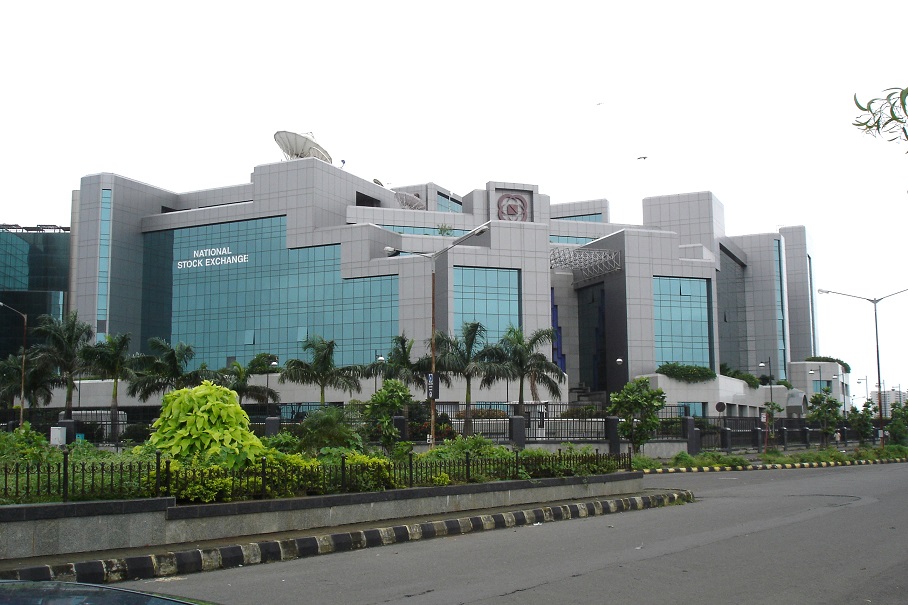The postmodern alteration of the BKC
August 29, 2016
From swamp to swank, the transformation of Bandra Kurla Complex (BKC) is fast nearing completion. Now dotted with high-rises and a flurry of (still) ongoing construction activity, these are starkly juxtaposed with adjoining slums and remaining marshland. Not for much longer. If the planning authority for the area – the Mumbai Metropolitan Region Development Authority (MMRDA) – has its way, it will soon auction another plot of land measuring 12,500 square metres for more development (currently there is a ban on all new construction in the city by the Bombay High Court). Meanwhile, three ambitious elevated road projects as well as two flyovers have been planned to improve connectivity. Construction is already underway for some of these.
“Moreover, with the second and third metro lines planned for Mumbai, we are looking at the possibility of getting these two lines to intersect at BKC. This will be an underground station. That would make BKC accessible from almost all areas of Mumbai as well as improve last-mile connectivity to BKC,” UPS Madan, MMRDA metropolitan commissioner, said in a press conference. It’s just as well. On the drawing-board for decades, all of these projects need speeding up. Otherwise, says Ramesh Nair, COO, at property consultant JLL India, “BKC will lose its attractiveness. With all the modern construction there today, a new building of a million and a half square feet means 15,000 more people coming into the area in cars, trains and buses. The government has to fast-track these infrastructure connectivity projects,” says Nair.
Meanwhile, aware of the transport bottlenecks and the lack of last-mile connectivity to BKC, it is the property developers in the area who have come up with a novel solution. Radius Developers’ ONE BKC which houses companies such as Bank of America and Brookfield, among a host of other blue-chip companies, has tied up with Mumbai’s BEST buses to ferry all workers in the building in air-conditioned buses at specified, regular intervals from nearby railway stations to the office and back, both morning and evening. “Until the time we can compare ourselves to Shanghai or to Hong Kong, all these investments have to be made,” says Ashish Shah, COO, Radius Developers.
With so much happening, Madan is cognizant of the need to alter regulation to allow for residential development. In fact, rules have just been amended to allow residential development in up to 30% area of a commercial plot. “There is a need for mixed use also,” says Madan. “In a residential plot, we will permit commercial activity in the first two floors such as shopping, restaurants and showrooms that blend well with the gentry and make it a lively place 24*7, rather than between only 9 am and 6 pm, which is the situation currently. At night, on holidays and weekends, there should be something happening. That’s the whole idea.”
All this has prompted property developers to keep a hawk’s eye on the situation. Driven by the high-grade, white-collar demand, Himanshu Kanakia of Kanakia Group says he is looking to build more residential projects and will make a bid when MMRDA auctions more land. TEN BKC by Radius Developers and Rustomjee Seasons by Rustomjee, on the fringes of the business district, both under construction, boast a client’s list that reads like a veritable who’s who of the corporate and the financial world. With the International Financial Services Centre (IFSC) envisaged to come up here, it’s no wonder corporate head honchos are settling in for the long haul. Managing directors, CEOs, partners and principals at top private equity firms, vice presidents and country heads have all purchased apartments in these modish complexes.
With well-laid out social infrastructure already in place – clubs, hospitals, hotels, schools – the positioning is such that one would not need to leave BKC, says Nikhil Bhatia, MD, Capital Markets and Head, Western Region, CBRE South Asia. “This is a micro-market that is becoming increasingly very self-contained. I think this is going to be a global financial hub equivalent to anything we have seen in Asia. BKC 2020 is going to have a very different look and feel to it.”







